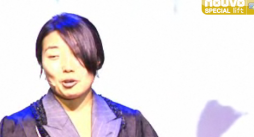With mobile phones become ubiquitous in developing countries and emerging markets, phone manufacturers istening to the unique design needs of users there. Younghee Jung , an anthropologist working for Nokia, spoke about the design possibilities for improving phones for the developing world at the LIFT conference in Geneva, Switzerland that addresses the "challenges and opportunities of technology in society."
In a video presentation, Younghee speaks about the research that Nokia conducted in shantytowns in three cities: Mumbia, India, Rio de Janeiro, Brazil and Accra, Ghana. The team conducted ethnographic research, conducted street surveys, and sponsored an "open studio" contest in which they asked people to design their ideal mobile phone.
"The design competition allowed participants to focus very much on seeking the relevance of technology to their lives, which is normally our job to do in other types of user research," Younghee said. She said that the various entries helped Nokia see what value people perceive from technology and how Nokia could build more useful phones in the future.
The three competitions received diverse submissions from the residents of each city. In Mumbai, a 20-year-old woman suggested a phone that she could point at the sky to check the weather, as the city has many weather-dependent jobs and lack of information from traditional media. Other suggestions included a phone with a loudspeaker to make public announcements, a bottle shaped phone that would float if the neighborhood was flooded, and phones that were durable and wouldn't break if dropped.
The winner of the Rio de Janeiro competition designed a phone that measured air pollution and the destruction of the ozone layer, as well as having a solar charging battery. Other entries from Rio included phones that could emit "peace waves" that would end conflict and phones that allowed people to monitor each other's location. In Accra, participants suggested phones that could translate languages, had pen drives to save personal data, and could hold up to four SIM cards at a time.
Younghee said that although Nokia is unlikely to build many of the suggested phones, the ideas from the competition were useful from a design standpoint. "The spectrum of insights in the open studio will certainly highlight issues we tend to neglect, or have not been aware of before in the company," she said. Watch the video below or on the LIFT website (click the search video button and then the mobile phone tag.)


Post new comment